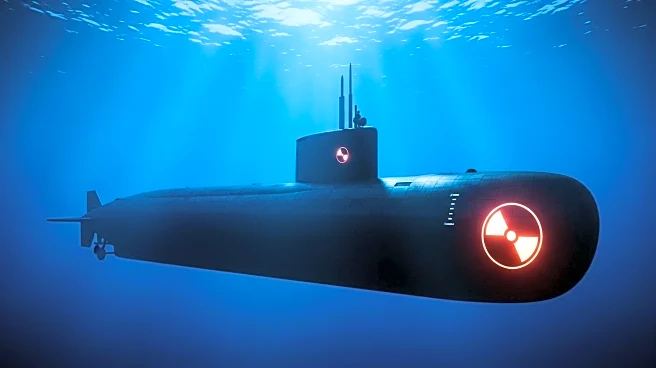What's Happening?
Adm. Hyman G. Rickover, a pivotal figure in the U.S. Navy, is celebrated for his transformative role in advancing the Navy into the nuclear age. Born in 1900 in Poland, Rickover immigrated to the United States, where he pursued a career in the Navy, eventually becoming a full admiral. His career spanned 63 years, making it the longest in U.S. military history. Rickover's vision for nuclear-powered submarines revolutionized naval warfare, leading to the launch of the USS Nautilus in 1955, the world's first nuclear-powered submarine. His rigorous standards and insistence on quality and accountability left a lasting impact on the Navy's culture and operations.
Why It's Important?
Rickover's contributions to the Navy have had profound implications for U.S. military strategy and global naval power. By pioneering nuclear propulsion, he enabled submarines to operate with unprecedented endurance and stealth, significantly enhancing the U.S. Navy's capabilities. This technological leap not only strengthened national defense but also set a standard for naval engineering and leadership. Rickover's emphasis on accountability and intellectual rigor continues to influence military training and leadership development, ensuring that the Navy remains a formidable force. His legacy underscores the importance of innovation and ethical leadership in maintaining military superiority.
What's Next?
The legacy of Adm. Rickover continues to influence the U.S. Navy as it navigates modern challenges. The principles he instilled in nuclear fleet operations remain relevant as the Navy adapts to new technological advancements and geopolitical dynamics. Future developments may include further integration of advanced nuclear technologies and continued emphasis on leadership training that reflects Rickover's values. The Navy's ongoing commitment to innovation and excellence will likely draw from Rickover's example as it seeks to maintain its strategic edge.
Beyond the Headlines
Rickover's story is not just about technological innovation but also about cultural transformation within the Navy. His approach to leadership, characterized by a relentless pursuit of excellence and moral integrity, challenged traditional naval hierarchies and set new standards for military conduct. His life as a Jewish immigrant who rose to prominence in a predominantly traditional institution highlights the broader themes of diversity and meritocracy in American society. Rickover's legacy serves as a reminder of the potential for individuals to drive significant change through vision and perseverance.









